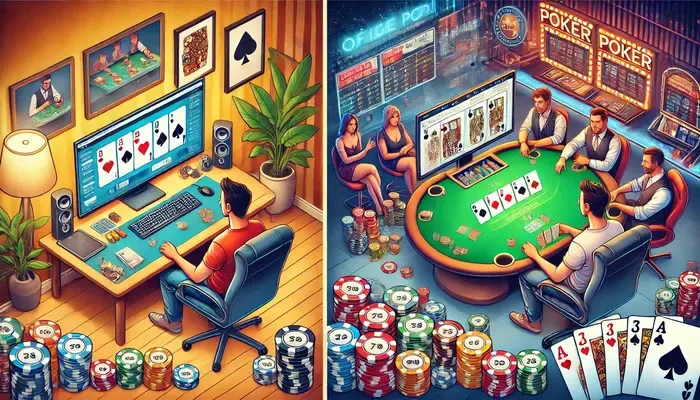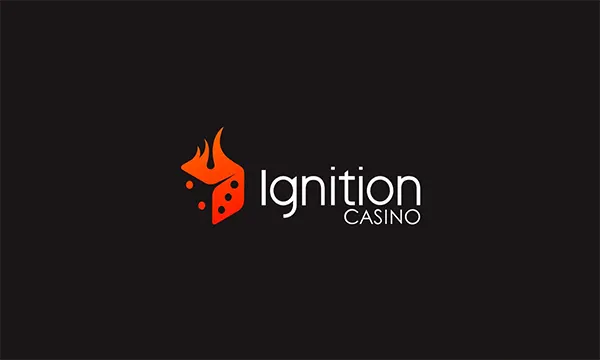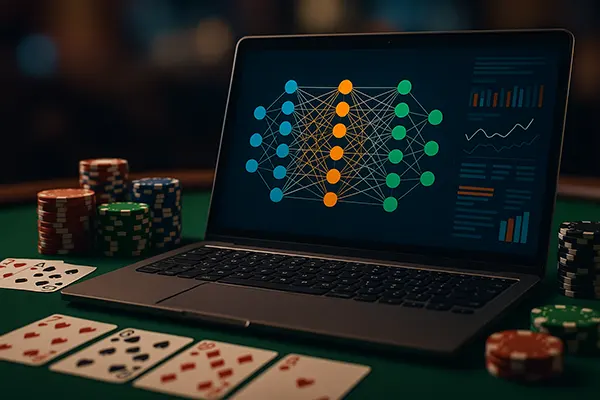
Online Poker vs. Offline Poker: Pros and Cons of Each Format
Poker has become one of the most popular card games globally, with its charm extending both online and offline. Whether playing at a table in a brick-and-mortar casino or engaging in a virtual game at 21Point Online Casino, poker enthusiasts are constantly weighing the pros and cons of these two formats. In this article, we will explore the advantages and disadvantages of both online and offline poker to help you determine which version suits your playstyle best.
Online Poker
Online poker has revolutionized how players enjoy this classic game. With a few clicks, you can join thousands of poker tables, engage in tournaments, and challenge players from around the world.
Pros of Online Poker:
- Convenience: One of the major benefits of online poker is the convenience it offers. Players can access the game from the comfort of their home, at any time of day or night. This flexibility makes online poker appealing to casual and dedicated players alike.
- Variety of Games: Online poker rooms, like those at 21Point Online Casino, often have a wide array of poker variations. Whether it’s Texas Hold’em, Omaha, or Stud Poker, you’ll find plenty of options to suit your preferences.
- Lower Stakes: Online poker typically allows for lower buy-ins, making it easier for beginners or players with a smaller bankroll to participate in games and tournaments.
- Speed of Play: Online poker is faster compared to its offline counterpart. The virtual environment eliminates the time-consuming aspects of shuffling, dealing, and placing bets.
- Multitabling: Many online poker players enjoy the ability to play multiple tables simultaneously, increasing their chances of winning across different games.
Cons of Online Poker:
- Lack of Physical Interaction: For those who thrive on reading their opponents’ body language and facial expressions, online poker can feel impersonal. You rely solely on betting patterns and timing tells.
- Risk of Collusion: While rare, online poker can sometimes involve cases of collusion where players work together to gain an unfair advantage.
- Technical Issues: Internet connection problems or software glitches can disrupt the gaming experience, which is less likely to occur in offline poker.

Offline Poker
Playing poker in a physical casino has its unique set of advantages and challenges. For many, the experience of sitting at a real table, holding physical cards, and engaging face-to-face with opponents is irreplaceable.
Pros of Offline Poker:
- Social Interaction: Offline poker allows players to read body language, make eye contact, and engage in the psychological aspect of the game. The live interaction can be thrilling and adds a strategic layer to poker that is absent online.
- Atmosphere: The ambiance of a casino, with chips clinking and cards being dealt, is part of the overall experience that offline poker players enjoy. This excitement can enhance your enjoyment of the game.
- Fewer Distractions: Offline poker often demands more focus since there are fewer external distractions compared to playing online at home.
- Trust and Security: Players tend to feel more secure playing in a regulated casino environment, where cheating is harder due to surveillance and staff oversight.
Cons of Offline Poker:
- Limited Availability: Unlike online poker, offline poker requires you to travel to a casino or poker club, which might not always be convenient.
- Higher Stakes: Offline poker tables often have higher minimum buy-ins, making it less accessible for casual players.
- Slower Pace: The manual processes of dealing cards and placing bets make offline poker slower than its online counterpart, which can be frustrating for players who prefer a faster pace.
- Limited Game Variants: Depending on the casino, the selection of poker variants may be limited, whereas online platforms usually offer a wider range.
Comparison of Online and Offline Poker
When comparing online and offline poker, the decision ultimately comes down to personal preferences and priorities. Online poker is ideal for those who value convenience, fast gameplay, and a wide variety of games. On the other hand, offline poker appeals to players who enjoy the social and psychological elements of face-to-face interaction and are willing to commit more time to each game.
For beginners, online poker at platforms like 21Point Online Casino offers a great starting point, providing easy access to games with low stakes. However, for those seeking the full poker experience, including the rush of reading opponents and the atmosphere of a live casino, offline poker remains unmatched.
Both online and offline poker have their pros and cons, and the choice between the two depends on what kind of experience you’re looking for. Whether you prefer the convenience of online poker or the social engagement of offline play, both formats offer exciting and rewarding gameplay.




